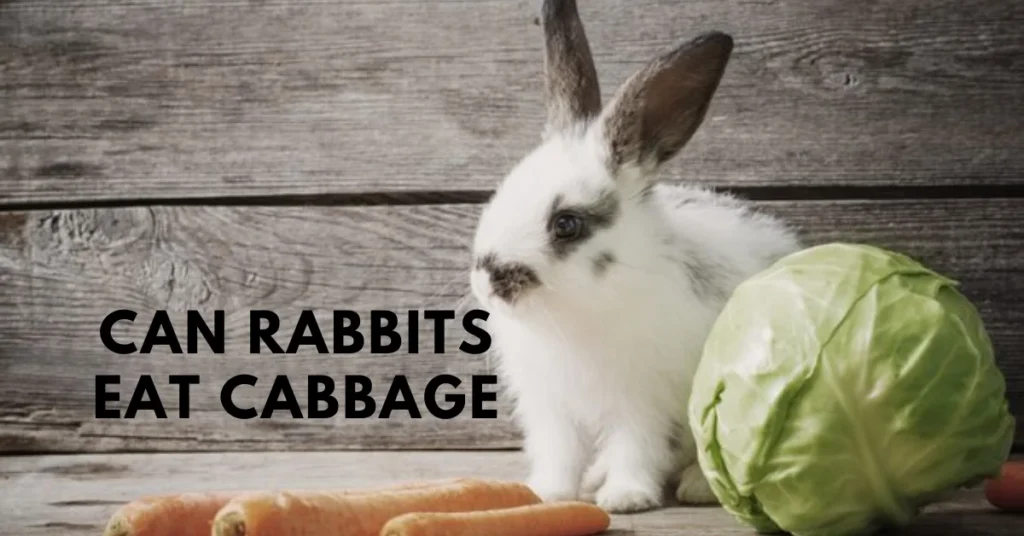Rabbits are adorable creatures with big appetites. As a rabbit owner, you want to ensure they enjoy a healthy and balanced diet. But when it comes to certain foods, questions arise—like whether cabbage is safe for your furry friend. Cabbage might be tasty for humans, but can rabbits eat cabbage without any issues? Let’s dive into the world of rabbit nutrition and uncover everything you need to know about feeding this leafy green to your pet!
The importance of a balanced diet for rabbits
A balanced diet is vital for rabbits to thrive. These little munchers require specific nutrients to maintain their health and energy levels. A diet lacking in variety can lead to serious health issues.
Rabbits are herbivores, so their meals should primarily consist of hay, fresh vegetables, and pellets. Hay provides essential fiber that supports digestion and keeps their teeth healthy. Fresh greens add necessary vitamins and minerals.
Introducing a mix of different foods not only meets nutritional needs but also prevents boredom during mealtime. This diversity encourages natural foraging behavior, which enriches your rabbit’s life.
Monitoring your rabbit’s weight and overall condition helps ensure they’re getting the right balance in their diet. Understanding what foods best support your pet’s well-being is key to keeping them happy and active.
Nutritional value of cabbage for rabbits
Cabbage is a leafy green that can be part of a rabbit’s diet. It’s low in calories, making it an appealing treat.
This vegetable contains fiber, which is essential for digestive health. Rabbits thrive on high-fiber diets to keep their intestines moving smoothly.
Cabbage also offers vitamins like C and K. Vitamin C supports the immune system, while vitamin K plays a role in bone health.
However, cabbage does contain moderate amounts of calcium and phosphorus. While these minerals are necessary, excessive quantities can lead to urinary issues over time.
Providing variety alongside cabbage ensures your rabbit receives balanced nutrition. Mixing different vegetables keeps meals exciting and healthy for your furry friend.
Potential health concerns with feeding cabbage to rabbits
While cabbage can be a tasty treat for rabbits, it does come with potential health concerns. One major issue is that cabbage contains compounds called goitrogens. These substances can interfere with thyroid function if consumed in large amounts over time.
Additionally, some rabbits may experience digestive upset from eating too much cabbage. Symptoms like gas or bloating are not uncommon. Since their digestive systems are sensitive, moderation is essential to avoid these issues.
Another consideration is the possibility of pesticides on store-bought cabbage. Always wash vegetables thoroughly to reduce any chemical exposure before offering them to your furry friend.
Introducing new foods should always be done gradually. A sudden change in diet might lead to gastrointestinal disturbances as well. Keeping an eye on how your rabbit reacts after trying cabbage will help you ensure they stay healthy and happy.
How much cabbage should rabbits eat?
When it comes to feeding cabbage to rabbits, moderation is crucial. A small amount can be a delightful treat, but too much can lead to digestive issues.
Aim for just a couple of leafy pieces per serving. This keeps their diet varied and balanced without overloading them on one type of vegetable.
Introduce cabbage gradually if it’s new to their routine. Monitor how your rabbit reacts after eating it.
Always remember that fresh hay should be the primary component of their diet. Vegetables like cabbage are merely supplements for added nutrients and enjoyment.
If you notice any signs of discomfort or changes in behavior, reduce the quantity immediately and consult with your vet if necessary. Keep an eye on those cute little tummies!
Other safe vegetables for rabbits to eat
Rabbits enjoy a variety of vegetables beyond cabbage. Leafy greens are often their favorites. Romaine lettuce, kale, and arugula provide essential nutrients while keeping mealtime exciting.
Carrots can be a delightful treat but should be given sparingly due to their high sugar content. Bell peppers are colorful options that add crunch and vitamins without the excess sugars found in some other veggies.
Zucchini is another safe choice for your furry friend. It’s hydrating and low in calories, making it perfect for bunnies who love to munch throughout the day.
Broccoli florets can also be included in moderation. They pack a nutritional punch but may cause gas if consumed too frequently.
Always remember to introduce new veggies slowly to monitor for any digestive issues. Keeping meals varied ensures your rabbit stays happy and healthy!
Tips for incorporating cabbage into a rabbit’s diet
Introducing cabbage to your rabbit’s diet can be a fun experience for both you and your furry friend. Start by offering small amounts at first. This allows your rabbit to adjust without any digestive issues.
Chop the cabbage into bite-sized pieces. This makes it easier for them to nibble on and enjoy. Mixing cabbage with their regular greens can also make mealtime more exciting.
Consider using fresh, organic cabbage when possible. It’s safer and free from harmful pesticides that might affect your pet’s health. Always wash the leaves thoroughly before serving.
Observe how your rabbit reacts after trying it out. If they seem to love it, you can gradually increase the amount in moderation, keeping an eye on their overall behavior and digestion.
Rotate different types of vegetables weekly alongside cabbage for variety, ensuring nutrition remains balanced and interesting in their diet.
Conclusion: Moderation is key in feeding cabbage to rabbits
When it comes to feeding rabbits, moderation is essential. Cabbage can be a tasty addition to their diet, but it’s important not to overdo it. A balanced diet filled with hay, fresh vegetables, and the occasional treat ensures your furry friend stays healthy.
While cabbage offers nutritional benefits like vitamins and fiber, too much can lead to digestive issues for rabbits. Keeping portions small allows them to enjoy this crunchy vegetable without adverse effects.
Remember that each rabbit is unique. Monitor your pet’s reaction when introducing new foods like cabbage into their meals. Look out for any signs of discomfort or changes in behavior.
By maintaining balance and variety in their diet, you’ll help your rabbit thrive while enjoying the occasional leafy green treat. Just keep moderation at the forefront of all dietary choices!
FAQs
What is “Can Rabbits Eat Cabbage”?
“Can Rabbits Eat Cabbage?” refers to the inquiry about whether cabbage is a safe and suitable food for rabbits. While cabbage can be a healthy treat in moderation, it should be introduced carefully to avoid potential digestive issues and to ensure a balanced diet.
Is cabbage a good source of nutrition for rabbits?
Yes, cabbage provides essential vitamins like C and K, and it contains fiber beneficial for digestion. However, it should be fed in moderation to prevent digestive upset and to maintain a balanced diet.
How much cabbage can I feed my rabbit?
Limit cabbage to a small amount, such as a couple of leafy pieces per serving. Introducing it gradually and monitoring your rabbit’s response will help prevent any digestive issues.
Can cabbage cause health problems for rabbits?
Yes, excessive cabbage can lead to digestive issues like gas and bloating. Additionally, cabbage contains goitrogens, which may affect thyroid function if consumed in large quantities over time.
What are some other safe vegetables for rabbits?
Besides cabbage, rabbits can enjoy a variety of vegetables such as romaine lettuce, kale, bell peppers, and zucchini. Always introduce new vegetables slowly and ensure they are part of a balanced diet.







